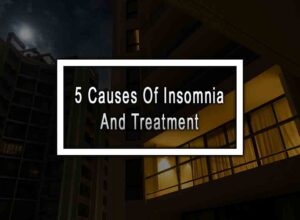Table of Contents
ToggleHere Are Some Tramadol Side Effects
Tramadol is a potent pain reliever widely used to treat moderate to severe pain. It belongs to a class of drugs called opioid analgesics and works by binding to the opioid receptors in the brain and spinal cord, thus reducing pain signals. While tramadol is highly effective in combating pain, it also has several side effects that users should be aware of. This article will shed light on some of the most common tramadol side effects.
Nausea and vomiting
One of the most common tramadol side effects is nausea and vomiting. These symptoms are caused by the drug’s effects on the brain’s serotonin and opioid receptors. They usually occur within the first few hours of taking the medication but tend to subside after a few days.
Dizziness and drowsiness
Tramadol can also cause dizziness and drowsiness, making it unsafe to drive or operate heavy machinery. These symptoms are more pronounced in elderly patients and those taking higher doses of the drug.
Headache
Headaches are a common tramadol side effect, arising from the drug’s effects on blood vessels in the brain. These headaches are typically mild and resolve on their own, but if they persist, one should seek medical attention promptly.
Constipation
Tramadol slows down bowel movements, leading to constipation in some users. This side effect can be managed by increasing fiber intake and staying hydrated.
Sweating
Tramadol can cause excessive sweating, especially at night, leading to discomfort and disturbed sleep. This side effect is more common in higher doses of the drug and in some patients with pre-existing thyroid conditions.
Dry mouth
Tramadol can cause dry mouth, making it difficult to swallow, speak, or eat. This side effect can be managed by drinking plenty of fluids and chewing gum or lozenges.
Itching
Itching or pruritus is a relatively common tramadol side effects, occurring in up to 10% of users. This symptom is usually mild and can be treated with antihistamines or topical creams.
Serotonin syndrome
Tramadol can increase serotonin levels in the brain, leading to a potentially life-threatening condition called serotonin syndrome. Symptoms of serotonin syndrome include fever, sweating, muscle stiffness, seizures, and confusion. Anyone experiencing these symptoms should seek medical attention immediately.
Conclusion
Tramadol Side Effects – Overall, tramadol is a highly effective pain reliever, but it also has several side effects that users should be aware of. These side effects are usually mild and subside on their own, but in some cases, they can be severe and require medical attention. Patients taking tramadol should follow their doctor’s instructions and report any adverse side effects promptly. Additionally, tramadol should not be taken with certain medications, as they can increase the risk of side effects or interactions. If you have any concerns about taking tramadol, speak with your doctor or pharmacist.
Tramadol Side Effects FAQ
Here are the most common questions about the Tramadol side effects.
Can tramadol cause addiction or dependence?
Yes, tramadol can be habit-forming and may cause addiction or dependence if used improperly or for long periods of time.
What are the symptoms of tramadol overdose?
Symptoms of tramadol overdose include slowed breathing, severe drowsiness, cold and clammy skin, muscle weakness, and unconsciousness.
Can tramadol interact with other medications?
Yes, tramadol can interact with other medications, including antidepressants, certain antibiotics, and drugs that affect serotonin levels.
How long does it take for tramadol to work?
Tramadol begins to work within 30 to 60 minutes after it is taken orally.
Is tramadol safe to use during pregnancy or while breastfeeding?
Tramadol should be used with caution during pregnancy and while breastfeeding, and only under the supervision of a healthcare provider.
What should I do if I experience severe side effects while taking tramadol?
If you experience severe side effects while taking tramadol, such as difficulty breathing or seizures, seek emergency medical attention immediately.
More like this: What Is Mediation And Its Process?












